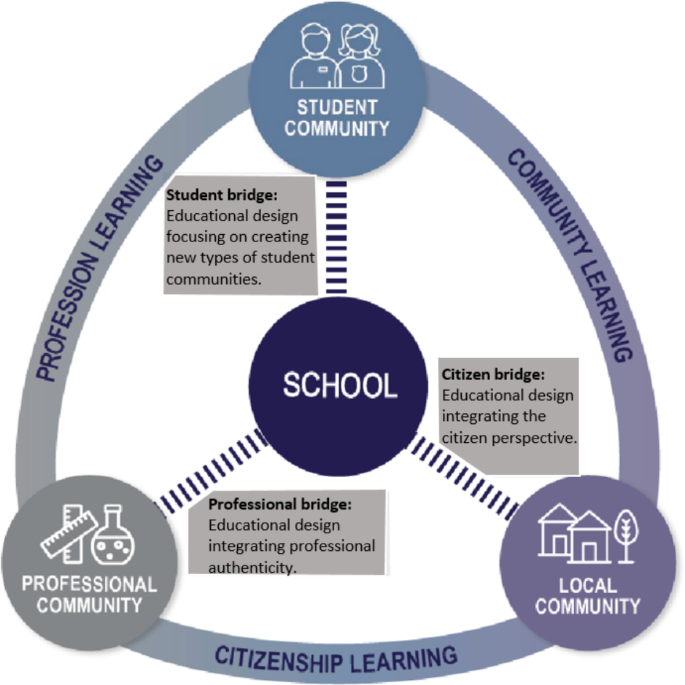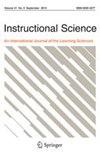Bridging communities and schools in Urban development: community and citizen science
IF 2.1
3区 教育学
Q1 EDUCATION & EDUCATIONAL RESEARCH
引用次数: 0
Abstract
Abstract This paper presents the results of two community and citizen science research projects – Cities at Play and Community Drive – in which young students (aged 11–15) from vulnerable residential areas in Copenhagen, Denmark, collaborated with architects and urban developers to engage in urban development initiatives in their neighborhoods. An educational design was developed over the two research projects in which students underwent phases of discovery, interpretation, ideation, and experimentation. Data were collected from surveys, observations, and interviews to elucidate the ways that three bridges central to community and citizen science projects can function. These include professional (bridges student learning in school and professional communities outside school), citizen (bridges student learning in school and local communities), and student (bridges student learning in school and new student communities) bridges. This research makes both theoretical and practical advancements. Theoretically, it advances our thinking about the diverse roles that participants in multi-sector partnerships can have, as well as how CCS widens the view of cultural asset-based learning by viewing students as experts of their local communities. Practically, we offer four guidelines that were gleaned from the results that can be instructive for the design of future educational community and citizen science projects.

在城市发展中架起社区与学校的桥梁:社区与公民科学
本文介绍了两个社区和公民科学研究项目的结果——城市在游戏和社区驱动——来自丹麦哥本哈根脆弱住宅区的年轻学生(11-15岁)与建筑师和城市开发商合作,在他们的社区参与城市发展倡议。在两个研究项目中,学生们经历了发现、解释、构思和实验的阶段,这是一个教育设计。从调查、观察和访谈中收集数据,以阐明社区和公民科学项目的三个核心桥梁的运作方式。这些包括专业(连接学生在校学习和校外专业社区)、公民(连接学生在校学习和当地社区)和学生(连接学生在校学习和新生社区)桥梁。本研究具有理论和实践两方面的进展。从理论上讲,它推动了我们对多部门合作伙伴关系参与者可以扮演的不同角色的思考,以及CCS如何通过将学生视为当地社区的专家来拓宽基于文化资产的学习的视野。实际上,我们从结果中收集了四条指导方针,可以指导未来教育社区和公民科学项目的设计。
本文章由计算机程序翻译,如有差异,请以英文原文为准。
求助全文
约1分钟内获得全文
求助全文
来源期刊

Instructional Science
Multiple-
CiteScore
4.80
自引率
4.00%
发文量
35
期刊介绍:
Instructional Science, An International Journal of the Learning Sciences, promotes a deeper understanding of the nature, theory, and practice of learning and of environments in which learning occurs. The journal’s conception of learning, as well as of instruction, is broad, recognizing that there are many ways to stimulate and support learning. The journal encourages submission of research papers, covering a variety of perspectives from the learning sciences and learning, by people of all ages, in all areas of the curriculum, in technologically rich or lean environments, and in informal and formal learning contexts. Emphasizing reports of original empirical research, the journal provides space for full and detailed reporting of major studies. Regardless of the topic, papers published in the journal all make an explicit contribution to the science of learning and instruction by drawing out the implications for the design and implementation of learning environments. We particularly encourage the submission of papers that highlight the interaction between learning processes and learning environments, focus on meaningful learning, and recognize the role of context. Papers are characterized by methodological variety that ranges, for example, from experimental studies in laboratory settings, to qualitative studies, to design-based research in authentic learning settings. The Editors will occasionally invite experts to write a review article on an important topic in the field. When review articles are considered for publication, they must deal with central issues in the domain of learning and learning environments. The journal accepts replication studies. Such a study should replicate an important and seminal finding in the field, from a study which was originally conducted by a different research group. Most years, Instructional Science publishes a guest-edited thematic special issue on a topic central to the journal''s scope. Proposals for special issues can be sent to the Editor-in-Chief. Proposals will be discussed in Spring and Fall of each year, and the proposers will be notified afterwards. To be considered for the Spring and Fall discussion, proposals should be sent to the Editor-in-Chief by March 1 and October 1, respectively. Please note that articles that are submitted for a special issue will follow the same review process as regular articles.
 求助内容:
求助内容: 应助结果提醒方式:
应助结果提醒方式:


